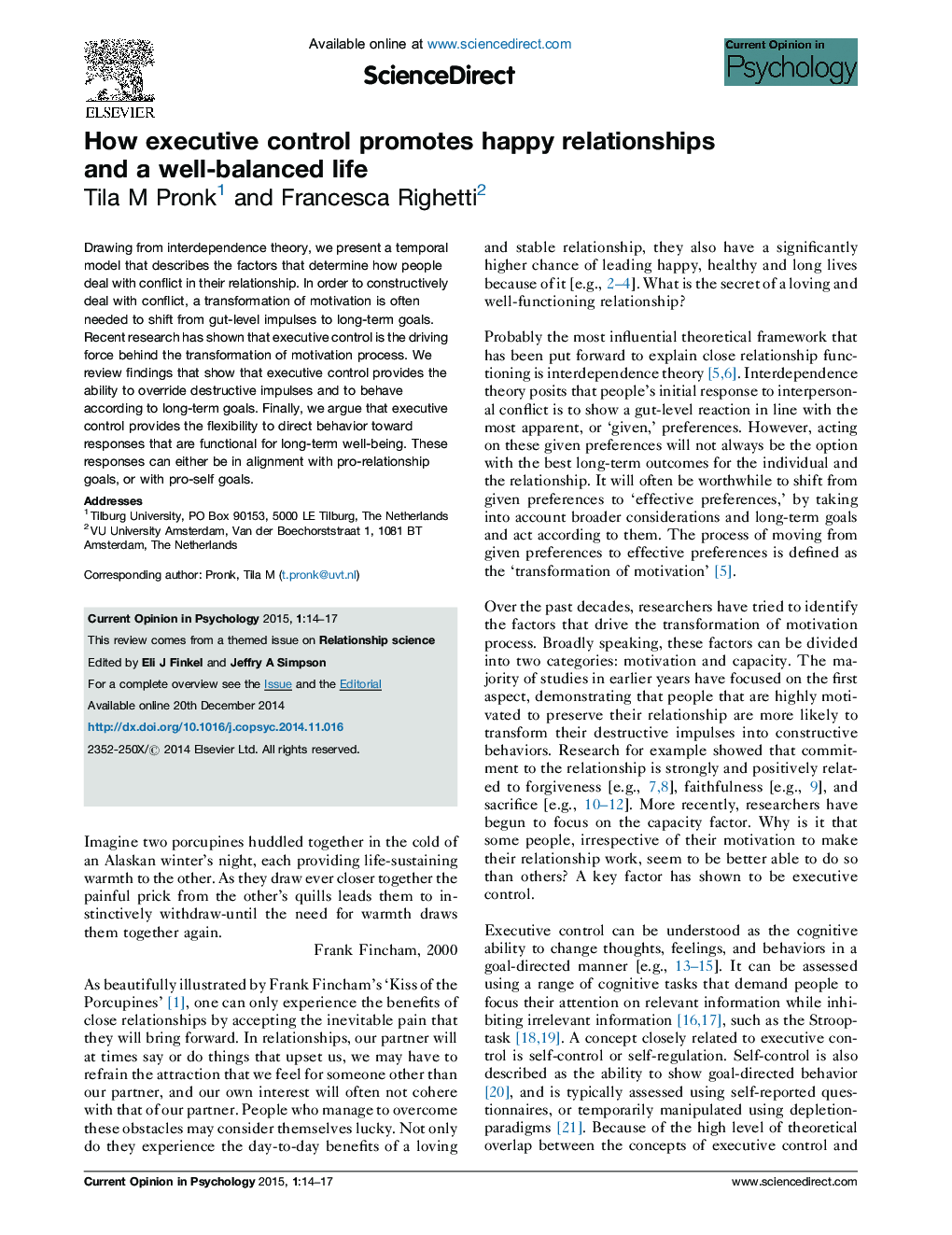| Article ID | Journal | Published Year | Pages | File Type |
|---|---|---|---|---|
| 879396 | Current Opinion in Psychology | 2015 | 4 Pages |
•We present a temporal model on how people deal with conflict in relationships.•A transformation of motivation is often needed in case of conflict.•Executive control enables the transformation of motivation process.•Executive control promotes pro-relationship goals, but also pro-self goals.•Executive control enables people to maximize long-term well-being.
Drawing from interdependence theory, we present a temporal model that describes the factors that determine how people deal with conflict in their relationship. In order to constructively deal with conflict, a transformation of motivation is often needed to shift from gut-level impulses to long-term goals. Recent research has shown that executive control is the driving force behind the transformation of motivation process. We review findings that show that executive control provides the ability to override destructive impulses and to behave according to long-term goals. Finally, we argue that executive control provides the flexibility to direct behavior toward responses that are functional for long-term well-being. These responses can either be in alignment with pro-relationship goals, or with pro-self goals.
